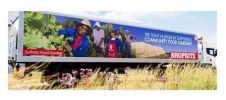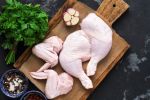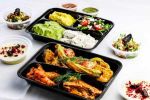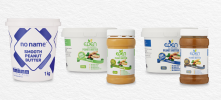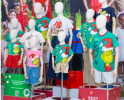By: Lynette Dicey - BusinessLive
South Africans are changing the way they eat their main meals as a result of load-shedding, according to recent research from BMi Research. Despite tough economic conditions, consumers are buying more takeaways, convenience meals and deli meals than ever before, presenting an opportunity for brand owners to tap into this growing trend.
The research was done in collaboration with Spark Media and surveyed 900-million main meals as eaten by South Africans in the month between August and September 2023.
The findings give retailers and manufacturers insight into why consumers’ baskets are shrinking at the tills and where that spend is going instead.
For instance, load-shedding forced 17% of respondents to eat their main meals earlier or later. Others changed the type of meal eaten or how it was cooked, while some still chose to eat a convenience meal. A convenience meal is classified as a quick-service restaurant or fast-food takeaway, a supermarket deli takeaway, or eating at, or getting takeaways from, a restaurant.
An estimated 4.6-million more convenience dinners were eaten as a result of load-shedding in that month.
This is hugely significant for brand owners operating in the convenience food industry, or those looking to include new product extensions in this sector, which is growing at an incredible rate.
This research is supported by findings from a recent Discovery Bank and Visa survey that showed that South Africans spend 60% more on takeaways and at restaurants during load-shedding stages 5 and 6.
But this is not a one-size-fits-all scenario; different income groups slot into this trend at different spots along the convenience meal continuum.
Of the people consuming these meals, 34% were fast-food takeaway meals, skewed towards the lower-income sector; 26% were restaurant meals, skewed towards the upper-income sector; 26% were ready-to-eat meals, skewed towards the lower-income bracket; 10% were supermarket deli or canteen meals; and 4% were leftovers from a previous takeaway or restaurant meal.
Different income groups slot into this trend at different spots along the convenience meal continuum
The upper-income consumers eating out at a restaurant during load-shedding preferred fine-dining establishments over other eateries.
Within these consumer patterns, two other interesting trends emerged: specific convenience meals were bought on the spur of the moment while others were part of a planned purchase.
As much as 56% of all takeaways came from spontaneous decision-making, while 60% of supermarket deli meals were planned beforehand and put onto a shopping list. Chicken was the most popular takeaway (48%), followed by burgers (29%) and pizza (22%).
The data reveals opportunities for convenience food marketers that want to reach these consumers. Fast-food outlets, for example, would be well served by advertising in places where split decisions regarding the day’s main meal are made, such as a billboard at a taxi rank. This capitalises on a captive audience who will be arriving home to load-shedding and will be looking for a quick and easy meal option.
Supermarket retailers with delis that want to reach consumers who plan their grocery and main meal shopping, on the other hand, should consider weekly newspaper advertising, given that consumers actively use broadsheet adverts to look for discounts and promotions when compiling their shopping lists.
This hints at a further change emerging from the shadows of load-shedding — the need for marketers to adapt their advertising mix to meet consumers’ changing spending patterns.
Consumers in lower-income brackets are less likely to have access to a TV or digital device connected to Wi-Fi during load-shedding, so advertising campaigns should be adapted to rather include SMS and newspaper advertising.
Conversely, food advertisers targeting the upper-income bracket can rely more on online advertising in their media mix with which these consumers actively engage via their digital devices during load-shedding.
There is another aspect layered over this consumer behaviour that must be considered — consumers’ emotional connection to food given that eating is both functional and emotional.
The most effective food advertising will be that which focuses on convenience and South Africans’ emotional connection to food, and that is placed in the right channels at the right time.


